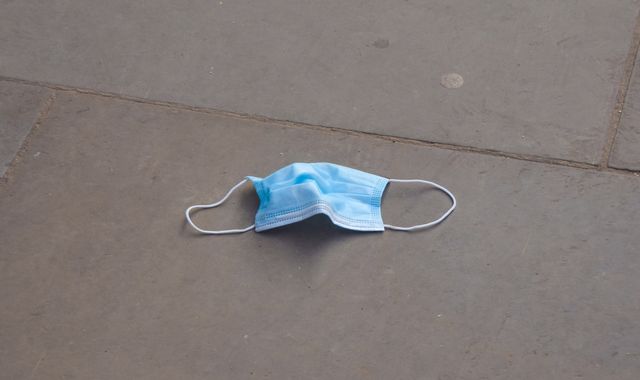The 2018 budget: Our experts’ verdicts
Written by News on 30/10/2018
Philip Hammond has announced that the “era of austerity is finally coming to an end”.


In his budget, the chancellor also confirmed extra investment in the NHS, more money for schools and immediate funding to help repair potholes in the roads.
But what did our experts make of it?
THE ECONOMY
Ed Conway, economics editor
At first glance, this budget was a far bigger deal than many people had been expecting.
In fact, look at the simple numbers and this was one of the biggest giveaway budgets ever – though that’s almost entirely because of the extra £20bn being spent on the NHS.
But how did the chancellor find that cash? The short answer is almost entirely through extra borrowing.
Earlier this year, the public finances improved dramatically, as more tax receipts started to flood into the Exchequer.
But rather than put that money in his pocket, using it to pay off the national debt, the chancellor decided, instead, to spend it. That was a big shift.
In hindsight, however, it was hardly surprising.
Philip Hammond needed as much money as he could get his hands on to both increase departmental spending (that end of austerity promise) and to fund the giveaways previously announced by the prime minister, most notably the extra NHS spending.
And that’s before one gets to the rabbit out of his hat: increasing the tax-free personal allowance a year early.
Is austerity really coming to an end? It depends how you measure it.
If you ignore the NHS, per-capita spending cuts are due to continue in the coming years – albeit gradually.
Include the NHS, and it certainly looks like austerity is over.
Either way, the pace of cuts has reduced considerably – all at the cost, though, of higher borrowing and public finances that remain very weak.
Indeed, the chancellor’s pledge to eliminate the budget deficit by the middle of the next decade has been well and truly broken, according to the Office for Budget Responsibility.
The politics was as interesting as the economics.
An end to austerity (allegedly), abolishing PFI, introducing a tax on tech giants, putting billions into the benefits system and, most of all, the decision to spend rather than save the extra windfall in the public finances.
One can hardly imagine previous Conservative chancellors doing that – but that is precisely what this government has done.
It’s hard to believe it was a Conservative budget.
POLITICS
Beth Rigby, deputy political editor
Phillip Hammond said his was a budget for the “grafters and strivers” who get up early and go to work – as he tried to use his statement to assure them that “their hard work is paying off and the era of austerity is coming to an end”.
And he put his money where his mouth was, as he brought promised tax cuts for 32 million people forward by a year.
The personal tax allowance is being lifted to £12,500 in April 2019, while the level at which the higher rate of tax kicks in will also be raised to £50,000 a year.
Those cuts brought him cheers in the chamber, but when it came to wider public spending, it was a ‘jam tomorrow’ budget for a chancellor boxed in by the economic uncertainty of Brexit.
Fiscally, it is difficult to calculate how much the public finances will be affected by Brexit when we still don’t know if the UK will be leaving with a deal or not.
There was a bit of extra money for social care (£650m), for defence (£500m), for schools (£400m) and for potholes and road repairs (£420m).
In reality, however, the big spending decisions will come next year in a post-Brexit spending review for the whole of Whitehall.
But Mr Hammond did find money for Universal Credit to reverse swingeing cuts for Britain’s lowest earners, promising an extra £1bn over the next five years to help ameliorate the worst effects of shifting from the old benefits system to the new one.
That was well below what some Conservative MPs had been demanding, though.
Against the backdrop of Brexit, Mr Hammond was pretty constrained.
Ending austerity is a post-Brexit project – and the current incumbents of No 10 and No 11 Downing Street may well not be the pair who’ll end up delivering it.
BUSINESS
Ian King, business presenter
There were some welcome announcements for business.
Entrepreneurs’ relief, which some had expected to get the chop, lives for another day but the minimum qualifying period will be extended from one year to two years to ensure it does genuinely work as intended.
Small businesses dodged a bullet when the threshold at which VAT becomes payable was kept at £85,000 for the next two years. Many had expected it to be lowered.
There were also tweaks to the use by large private companies of private contractors to avoid paying national insurance. These measures have already been rolled out for the public sector.
Then came the much-touted assault on the US tech giants.
Digital platforms “pose a real challenge to the sustainability and fairness of our tax system”, said Mr Hammond, highlighting the low taxes paid by the tech multinationals.
Pointing out that progress was “painfully slow” in forging an international deal, he announced a new digital services tax, to fall on specifically targeted companies. The tax, to be introduced in April 2020, is expected to raise £400m a year.
Mr Hammond added: “This step will show we are serious about this reform,” and joked he was looking forward to hearing from Sir Nick Clegg, the former deputy prime minister, who has just started working for Facebook.
The danger, though, is that it is unlikely to make much of a difference. The likes of Facebook and Amazon are past masters at shifting their revenues in order to reduce their tax liabilities.
The digital services tax provided a neat segue into what, as far as business was concerned, were the most compelling announcements – Mr Hammond’s proposals to support the high street.
Central to this was the launch of a new future high streets fund.
He also announced that, for the next two years, all retailers with a rateable value of £51,000 or less would see a reduction of one-third.
Public lavatories will also enjoy business rates relief.
Perhaps this might herald a wave of larger stores opening toilets for the purpose of reducing their rates bill.
This is a more important announcement than the chancellor implied – accompanied by a string of toilet-related gags.
HEALTH
Paul Kelso, health correspondent
The chancellor was expected to make much of the government’s commitment to increase NHS spending in the budget.
In fact, whether by accident or design, he made less of it.
In June the prime minister promised an annual increase of 3.4% for the next five years – worth £20bn more to NHS England by 2023, a figure used earlier in the day by health secretary Matt Hancock.
Earlier this month, however, the chancellor claimed it would be worth £84bn, a number that appears to be the cumulative increase for England, Wales, Scotland and Northern Ireland and which has been dismissed as “unhelpful and potentially misleading” by fact-checkers Full Fact.
On his feet at the despatch box, however, Mr Hammond used neither, proclaiming an “£8.4bn five-year deal for the NHS”, calling it the greatest government commitment to the public sector in history.
It’s not entirely clear if that was the number he meant to use, or whether he read a decimal point in his script that should not have been there, dividing his £84bn by 10.
Whatever he meant to say, his other health-related announcements were well-trailed.
Mr Hammond re-announced Department of Health plans to prioritise mental health treatment, including provision of support teams in schools; confirmed a £650m fund for social care, and announced £10m for the charitably-funded air ambulance service.
Significantly, he also committed to the central management of existing NHS PFI deals – the controversial public-private arrangements that were used to build many hospitals in the late 1990s and 2000s, mostly to the detriment of the public purse and the benefit of the private.
For detail on what the public can expect from the NHS in return for the extra money (whatever the chancellor finally decides it’s worth) we will have to wait until the publication of a 10 year-plan later this month.
DEFENCE
Alistair Bunkall, defence and security correspondent
The chancellor said the MoD budget would get an extra £1bn over the next two years.
It will mean that the armed forces will avoid any immediate cuts to personnel or capability.
The potential scrapping of HMS Bulwark or HMS Albion won’t happen now, the Royal Marines won’t be reduced in size, and the number of F35s on order remains the same – for now.
The worst-case scenarios that were starting to look very possible a year ago have been avoided.
“This time last year I was sitting in meetings with the defence secretary and the situation was grim,” a senior defence source said to me after the chancellor sat down, adding: “We’re in a much better place now.”
Some of the money will be spent on cyber capabilities and the UK’s new anti-submarine maritime patrol aircraft. This is on top of an extra £800m announced in March to continue building the new nuclear deterrent.
Defence Secretary Gavin Williamson has fought hard and at times fought dirty to get this cash.
It’s a win for him but a small one – the MoD isn’t out of the woods.
The department faces a black hole of £20bn over the next 10 years but will have to wait for the spending review next spring to hear whether it will get what it desperately needs.
Nevertheless, this is better than nothing. The alternative was unthinkable and perhaps, given the strength of feeling among the Conservative backbenches, unsustainable.
TECHNOLOGY
Rowland Manthorpe, technology correspondent
The big question before the budget was whether the chancellor would dare to impose a “tech tax”. In the end, he did. Sort of.
The announcement of a “digital services tax” directly aimed at the biggest platforms signals the Treasury’s desire to collect tax from Facebook, Google, Amazon and their ilk.
But there are a number of caveats.
It will be “carefully designed” – government speak for “we’re not quite sure how it will work”.
It will not come in until April 2020. And it will be set aside if an international solution arrives before that date (which is surely what the chancellor hopes).
But perhaps most importantly, it will only raise £400m, when most estimates of the tax gap put the sum far larger.
This move will satisfy neither campaigners nor the tech firms. But it will put off one of the trickiest questions the chancellor faces… for now.
(c) Sky News 2018: The 2018 budget: Our experts’ verdicts







